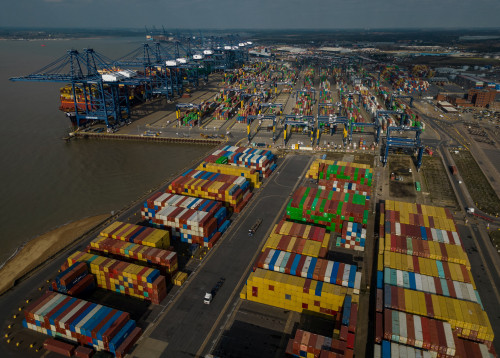 1
1 1
1


By Alun John
HONG KONG (Reuters) – Asian shares gained on Friday ahead of U.S. jobs data that will give another clue to the health of the world’s largest economy as warning signs flashed in bond markets, and oil traded around its lowest level since the start of the war in Ukraine.
MSCI’s broadest index of Asia-Pacific shares outside Japan rose 0.74%, boosted by index heavyweight TSMC, which jumped 3.2%, regaining ground it had lost earlier in the week due to tensions surrounding U.S. House of Representatives Speaker Nancy Pelosi’s visit to Taiwan.
This left the regional index set to finish a third straight week in positive territory, while Japan’s Nikkei gained 0.83%.
EUROSTOXX 50 futures and S&P 500 futures both gained 0.2%.
But the day’s main event, U.S. employment data, is yet to come, with investors waiting to see whether the U.S. Federal Reserve’s aggressive pace of rate hikes is starting to cause economic growth to slow.
Nonfarm payrolls are expected to increase by 250,000 jobs last month, after rising by 372,000 jobs in June.
Last week, shares and U.S. treasuries rose as markets decided the Fed might raise rates less aggressively due to fears about a recession and hopes of slowing inflation, though many Fed policy makers have pushed back on such suggestions this week.
“We’re waiting to see a slowdown in the labour market, so if we get a large miss, it will finally confirm the labour market is slowing, and we’ll see some more rallies in U.S. treasuries,” said Prashant Bhayani, chief investment officer for Asia at BNP Paribas Wealth Management.
Other asset classes are already reflecting a slowdown.
“The bond market is saying there is a pretty high chance of recession, while the equity market is focused on the labour data, said Bhayani.
The closely watched part of the U.S. Treasury yield curve measuring the gap between yields on two- and 10-year Treasury notes reached 39.2 basis points overnight, the deepest inversion since 2000.
An inverted curve is often viewed as portending a recession.
On Friday morning, 10-year yield was 2.6936% and the two-year yield was 3.0531%, leaving the gap between them at a still large 36 basis points.
In another sign that growth could be slowing, oil closed overnight at its lowest levels since February, before the war in Ukraine.
“Crude oil fell sharply as recessionary fears drove concerns of weaker demand,” said analysts at ANZ, with declines also partly due to data on Wednesday showing surge in U.S. inventories last week.
Prices recovered a touch in Asia trade on Friday, Benchmark Brent crude futures were up 0.5% $94.61 a barrel and U.S. crude futures were 0.7% higher at $89.12 a barrel.
In currency markets the dollar index, which measures the greenback against six major peers, was at 105.93, up a fraction having fallen 0.6% overnight alongside falling U.S. yields.
Sterling was down a whisker against the dollar at $1.2142 after taking a spin overnight as the Bank of England raised interested rates and warned a long recession was approaching Britain.
Spot gold was steady at $1,790 an ounce.
(This story refiles to correct headline to remove extraneous words)
(Editing by Stephen Coates)